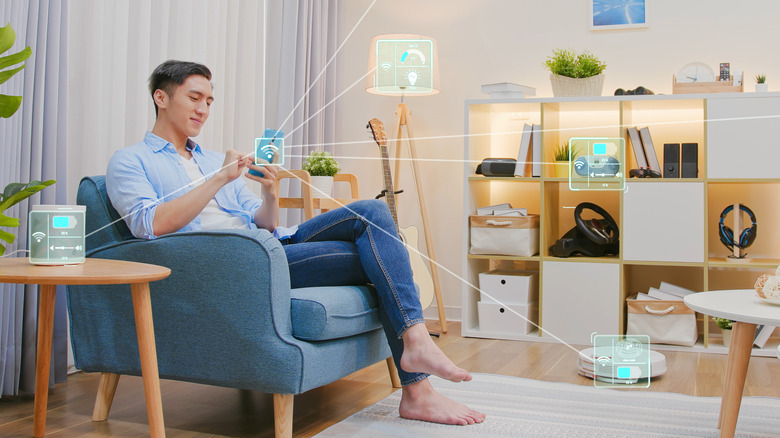Meet Matter: Why This Smart Home Savior Is Worth Paying Attention To
We may receive a commission on purchases made from links.
The 2000s-vintage dream of the smart home, every service and appliance interconnected to provide seamless service tailored to suit every user's need, has proven tricky to realize. Plenty of people bought into the concept, but the result has been less a unified solution than a patchwork of glitchy, incompatible oddities. Even major players in the field like Google and Apple have pushed their own protocols at the expense of others, creating software conflicts and embarrassing corner cases where smart players spend real money on tech that flat doesn't work.
In short, the Internet of Things currently consists of many interesting Things that don't quite Internet. Every player in the market has its own standard to sell, so nobody's standard fully delivers on the promise of an autonomous, user-friendly digital home. What's to do? Meet Matter.
Matter is simply a software protocol allowing smart home elements to network with one another. It's the flagship product of the Connectivity Standards Alliance, a group of tech companies that have committed to using the Matter protocol in their smart home and IoT technology going forward. CSA membership is substantial: companies from Apple, Google, and Samsung to IKEA and Kroger have signed up. Is that the solution, then? Can Matter fix the Internet of Things?
Skepticism, optimism and the future in between
Can Matter change the IoT game? Probably! Based on what's been released to the press, the technology seems solid and the development tools are both clear and user-friendly. Will it? Good question. Close observers of the smart home market, or frankly any competitive market, might have doubts. Two things can be reliably said of large businesses: they enjoy money and do not enjoy sharing. There is precedent, however. In the high and far-off 1980s, the big players in the relentlessly competitive music industry put down their financial weaponry long enough to standardize the MIDI protocol. As Britannica records, they've stuck with it since.
The Connectivity Standards Alliance has a similar offer in Matter — the shared protocol creates a way for companies to come together and guarantee users will still buy what they offer. Aside from being a consumer-friendly choice, wide compatibility can be better for the bottom line than exclusivity. At some point, the value of a smaller piece from a larger pie beats a big piece of a little one.
As to whether that math will ever balance on Matter, only time will tell. Thus far, big players seem to be honoring their CSA commitments. Apple supports Matter as of iOS 16.1 (via Apple Developer). Samsung SmartThings is now Matter-certified as well. Google Nest is stepping up too. Of course, maintaining Matter as a workable standard will require long-term cooperation, not just an early show of goodwill. If CSA signatories keep playing nice, the Matter protocol has a real chance to answer the compatibility problem of the Internet of Things.

